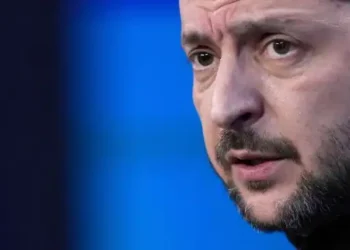The fatal helicopter crash that claimed the lives of security personnel and public servants engaged in anti-galamsey operations shocked the nation and underscored the human cost of Ghana’s struggle with illegal mining.
Beyond the immediate sorrow, the tragedy produced a moral imperative: to ensure that those who risk and sometimes lose their lives in the fight against environmental crime are not memorialized only in ceremonies, but in concrete policies and actions that prevent future loss.
Combating galamsey effectively is the most fitting and practical way for the government to honor these victims.
Ghanaian YouTuber, Kwadwo Sheldon, has called on the government to intensify the fight against illegal mining, popularly known as galamsey, following the death of eight individuals, including two serving ministers and other prominent figures.
Kwadwo Sheldon, when analysing the tragic incident on his show, lamented the lack of commitment to the fight against galamsey, which has subsequently claimed the lives of Minister for Defence, Dr. Edward Kofi Omane Boamah, and the Minister for Environment, Science and Technology, Alhaji Ibrahim Murtala Mohammed.
Also among the deceased were National Democratic Congress (NDC) Vice Chairman Dr. Samuel Sarpong; Deputy National Security Coordinator Alhaji Mohammed Muniru Limuna; former parliamentary candidate Mr. Samuel Aboagye, and three military personnel: Squadron Leader Peter Baafemi Anala, Flying Officer Twum Ampadu, and Sergeant Ernest Addo Mensah.
“Eight people died in the line of duty while serving the country. They were en route to Obuasi for an event aimed at combating the galamsey menace when the tragic incident occurred. Galamsey is destroying our water bodies and forests.
“We can’t treat galamsey operators with kid gloves. Instead, we should fight galamsey aggressively to honour the memories of those who lost their lives. It’s a national emergency that requires urgent attention.”
Kwadwo Sheldon
Kwadwo Sheldon added that, “the fact that the country organises events and initiatives to fight galamsey shows our failure as a country,” urging the government, as a matter of urgency, to declare galamsey operators as terrorists and deal with them ruthlessly, given the damage to the environment.

Galamsey is more than an environmental problem; it is a driver of social instability, public health crises, and conflict over resources. Illegal mining causes river siltation and contamination (often with mercury), deforestation, loss of arable land, threats to water supply and fisheries, and increased flooding and erosion.
Communities suffer declining agricultural yields and livelihoods, and local tensions escalate between miners, landowners, and state actors. Those tasked with enforcing the law — security forces, environmental officers, and public officials — increasingly face hostile, dangerous circumstances in remote and degraded landscapes.
The helicopter tragedy painfully highlighted the risks borne by these frontline responders and the urgency of addressing the root causes that put them in harm’s way.
Public mourning and memorials are important, but they should be accompanied by substantive policies. Honoring the victims requires preventing future sacrifice by removing the conditions that create the need for risky enforcement operations.
Doing so demands sustained political will and a multi-pronged strategy that treats galamsey as a national-security, environmental, and development problem rather than a localized nuisance.
Honoring Victims Through a Lasting Legacy

To genuinely honor those who perished, the government should pair symbolic recognition with measures that memorialize their service through sustained public benefit: establish scholarships and training programs in their names for young Ghanaians from affected districts; create community development funds targeted at the regions most impacted by galamsey; and legislate stronger protections for environmental defenders.
These acts would transform individual sacrifice into communal resilience.
The helicopter crash brought into stark relief the price that public servants and communities are paying in Ghana’s battle against galamsey.
Honoring the victims requires more than condolence statements or single-day commemorations; it demands decisive, sustained, and transparent government action that alleviates the environmental, economic, and governance drivers of illegal mining.
By strengthening enforcement and accountability, formalizing and supporting artisanal miners, investing in remediation and alternative livelihoods, and institutionalizing safety for enforcement operations, Ghana turns grief into progress.
That is the most meaningful tribute to those who gave their lives — ensuring their loss helps secure a safer, healthier, and more just future for the nation.
READ ALSO: Aviation Expert Calls for Public Restraint in Helicopter Crash Probe



















